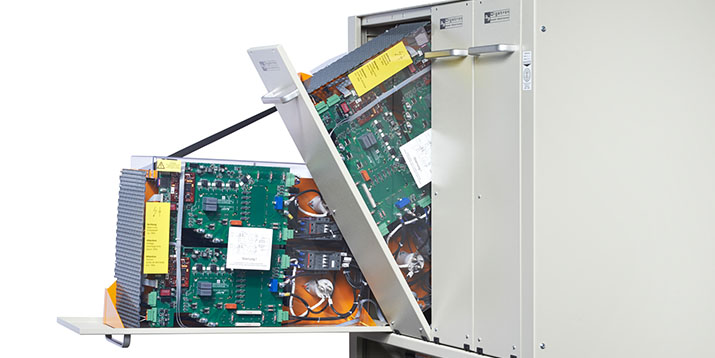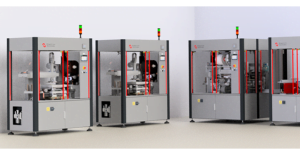battery formation is a critical step in the production of lead-acid batteries, incorporating the initial charge and optional discharge to guarantee optimal functionality and durability. In this article, we will explore the intricacies of the battery formation process, emphasizing the role of formation rectifiers and their significance for lead batteries. Formation rectifiers, also referred to as battery chargers, are indispensable for the initial charge and potential discharge of lead-acid batteries.
These devices are pivotal in ensuring the precise delivery of currents and voltages during the charging process, thereby influencing the optimal performance and longevity of lead batteries. Their proven reliability and quality have solidified their standing as an essential tool in battery formation processes globally.
What is battery formation and why is it important?
Battery formation is the process of initially charging and, if needed, discharging a battery to establish its capacity, performance, and reliability. It is a critical step in the production of lead-acid batteries as it ensures that the battery meets the required specifications for optimal performance and longevity.
The formation process helps in activating the active materials within the battery, removes impurities, and establishes the desired chemical and electrical properties. This is essential for achieving consistent and reliable performance from the battery throughout its operational life.
Formation rectifiers, also known as battery chargers, play a pivotal role in the battery formation process, ensuring the precise delivery of currents and voltages necessary for optimal performance and longevity of lead batteries. Their flawless quality and proven reliability have solidified their standing as an indispensable tool in battery formation processes globally.
The incorporation of formation rectifiers in the initial charge and optional discharge of lead-acid batteries has been paramount in guaranteeing their functionality and durability. This makes them essential for industrial use, where reliable and efficient power sources are imperative for various applications across diverse sectors.
What is the role of formation rectifiers in battery formation?
Formation rectifiers are specialized devices used for the initial charge and, if required, the discharge of lead-acid batteries during the formation process. These rectifiers are designed to provide precise control over the charging and discharging parameters, ensuring that the battery is conditioned to meet the desired performance characteristics.
The formation rectifiers offer precise voltage and current control, ensuring that the battery is charged at the optimal rates and conditions for the specific battery chemistry and design. This helps in preventing overcharging or undercharging, which can negatively impact the battery’s performance and longevity.
How does the formation process impact the performance of lead batteries?
The formation process plays a crucial role in determining the performance and longevity of lead-acid batteries. Proper formation ensures that the battery attains the desired capacity, voltage characteristics, and internal structure, which are essential for consistent and reliable performance.
Through the formation process, the active materials within the battery are conditioned to facilitate efficient electrochemical reactions during charge and discharge cycles. This results in improved energy storage, lower internal resistance, and enhanced cycle life, ultimately leading to better overall performance and durability of the lead battery.
Furthermore, formation rectifiers play a pivotal role in ensuring the precise delivery of currents and voltages during the charging process. This precision control is imperative for establishing the optimal performance and longevity of lead-acid batteries.
By carefully regulating the charging parameters, formation rectifiers contribute to the activation of active materials within the battery and aid in establishing the desired chemical and electrical properties. Ultimately, this meticulous control not only influences the immediate performance of the battery but also significantly impacts its long-term reliability and operational efficiency.
Why is rectifier used in power supply?
Rectifiers are pivotal components in power supply systems, serving the crucial function of converting alternating current (AC) to direct current (DC). This conversion is essential for numerous electronic devices and applications that require stable and consistent DC power. The deployment of rectifiers ensures that the power supply meets the specific voltage and current requirements of the connected equipment, contributing to the reliable and efficient operation of various electrical and electronic systems. Rectifiers come in various configurations, including diode rectifiers, bridge rectifiers, and voltage-multiplier rectifiers, each designed to address distinct power supply needs and specifications.
The battery formation process, facilitated by formation rectifiers, is a vital step in ensuring the quality and performance of lead-acid batteries. By understanding the significance of this process and its impact on battery performance, manufacturers and users can appreciate the value of proper formation for achieving reliable and long-lasting lead batteries. The use of formation rectifiers has proven to be instrumental in achieving flawless quality and reliability in battery formation, making them indispensable in the production of lead-acid batteries.






